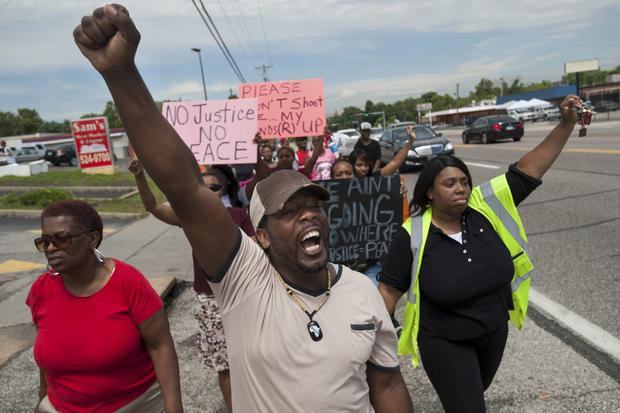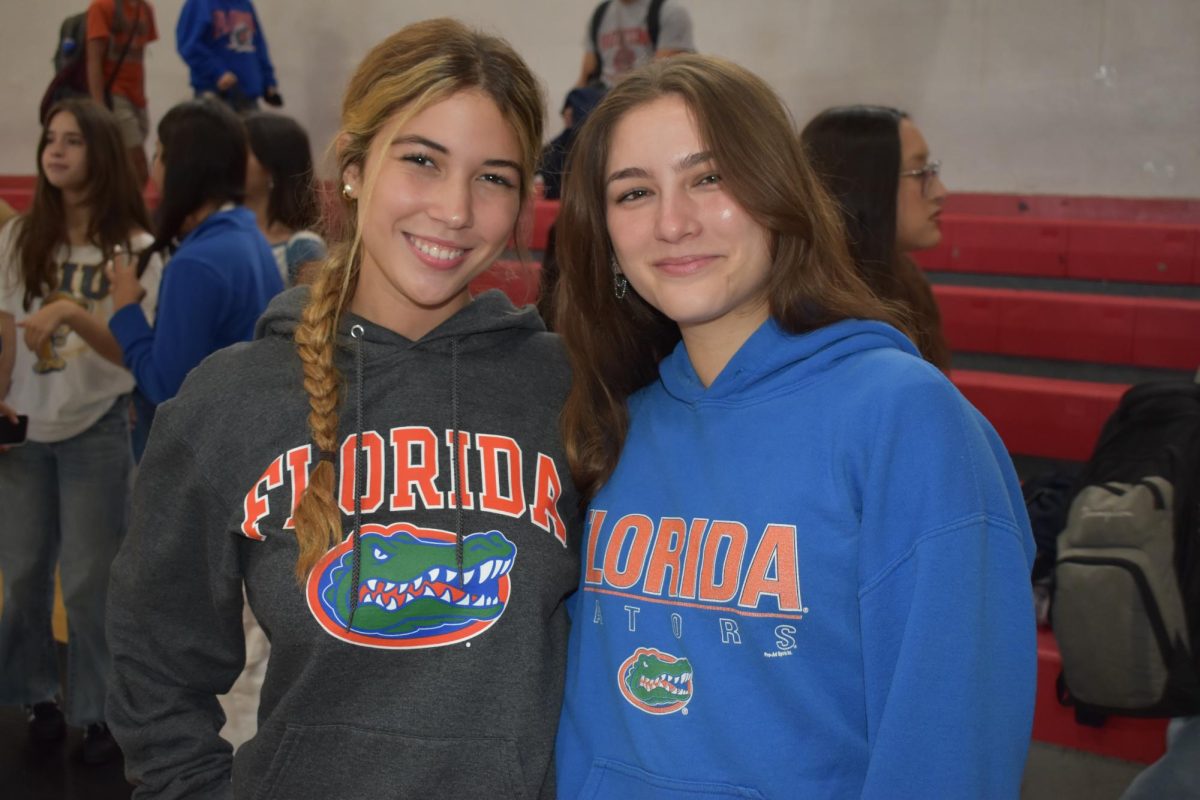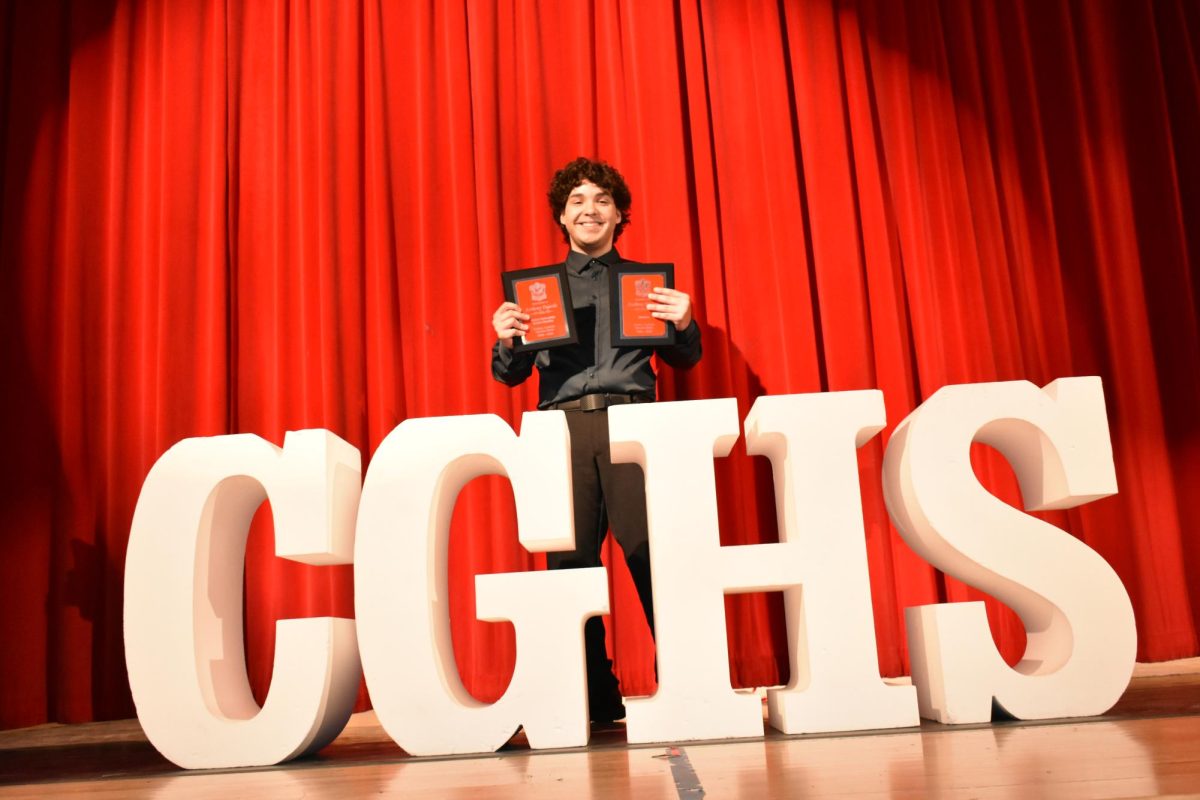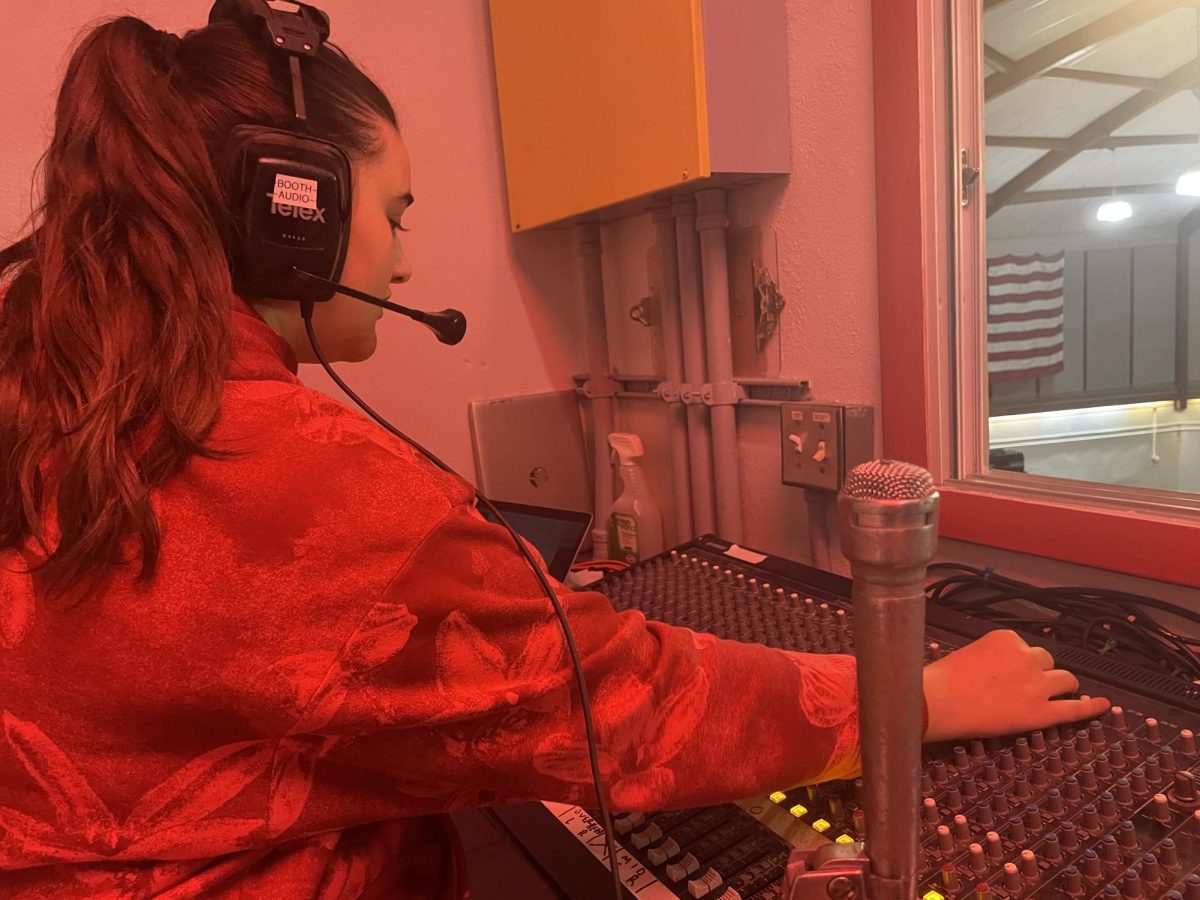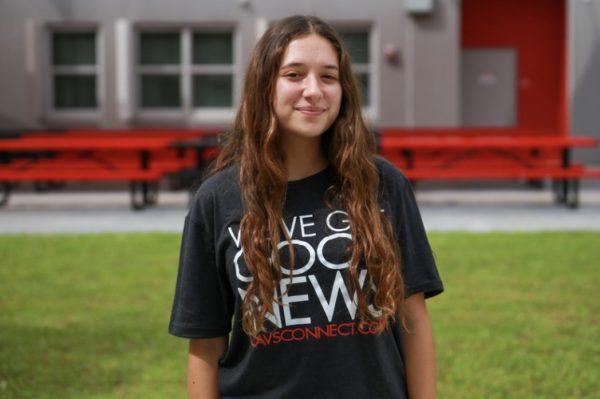What Was Gained and Lost In Ferguson, Missouri
Protestors march in Ferguson, Missouri in response to the death of teen Michael Brown.
Sep 1, 2014
Black and white are two shades in the same spectrum. They blend, like the way that ridiculous ombre hairstyle is supposed to be a gradual change from dark to light. What a spectrum means to me is that we’re all different shades of a single fragment of light, and that makes us equal. To other people, it means night and day, and should be regarded differently as a result. Whether I agree with one philosophy over my own is irrelevant, as everyone has the right to his or her own individual perspective. That also means that there is likely to be more than one take on black and white and how they interact.
The same rings true for the events in Ferguson, Missouri, where the death of Michael Brown has sparked a nationwide argument on race, violence, and the way we see the world as individuals. To Senior Adrian Suarez, the death of an unarmed Black teenager at the hands of a White police officer are familiar, and unwanted recurrence. “I think it’s another Trayvon Martin situation and everybody is gonna have something different to say,” he mentioned. When it comes to race, everyone is reminded of the Black versus White debate, and whether the violence again African Americans—whether it be deemed accidental or not—is the real measure of how much progress America has made in a land trademarked for it’s promise of the pursuit of equality.
To others, Ferguson is not a matter of race, but of public safety; in which a life was taken that can’t be replaced and no one is being held accountable. It is a question of what measures should be taken to ensure that the people aren’t afraid or angry at the police, but can trust that the police won’t turn and injure someone if they’re feeling a bit too trigger happy. While people are still unsure of whether the shooting of Michael Brown was because he attacked the officer or was entirely innocent, the undisputed fact that he was unarmed cause concern for the safety of people in neighborhoods in which they should otherwise feel safe. “If the boy was unarmed and not doing anything wrong than taking an innocent life isn’t right,” argues Daniella Munoz, a junior.
A third perspective on the small Missouri neighborhood considers the citizen’s right to protest. People from far and wide have come together for peaceful—and not so peaceful—declarations of discontent, having everything from candlelight vigils in memory of Michael Brown to riots resulting in looting and vandalism, and the display of excessive brutality by the police in cases where the people were peaceful. While individuals claim it’s unnecessary and a dramatic bid for attention to an otherwise already controversial case, others are disappointed at the social climate, stating that if people must face tear gas and break windows in order to be heard, then the government isn’t listening, and that’s inherently wrong. Ann-Marie Bracho, a senior, says that “ The situation in Ferguson only demonstrates that the police body is unprepared to handle situations of high civilian risk, that the judicial system is unable to overcome racial profiling to deliver justice, and we as civilians are unable protest in a peaceful and orderly fashion.”
What we gain from talking about Ferguson is not an answer to the race question, or the gun control problem, or whether people should protest at the risk of being injured for their beliefs. It’s not a casual, 5 minute conversation someone has over a cup of coffee on his or her way to work. It is disheartening that such tragic events have to occur to foster debate on important social topics in our community, but it develops a valuable skill in thinking critically. Talking to my peers about current events lets me see the world in an ever-growing spectrum of, instead two distinct shades on opposite ends, even if I don’t agree with some of the shades. What Michael Brown—and Trayvon Martin, as well—have taught people from all over the nation is that talking is important, and there should be more of it. What Michael Brown taught me is that some things are gained and lost, and some things are gained by being lost. We gained a step forward in consideration of important social topics, and we lost an individual who was known in his community for being a kindhearted man. Maybe next time we’ll gain something without losing that much.


